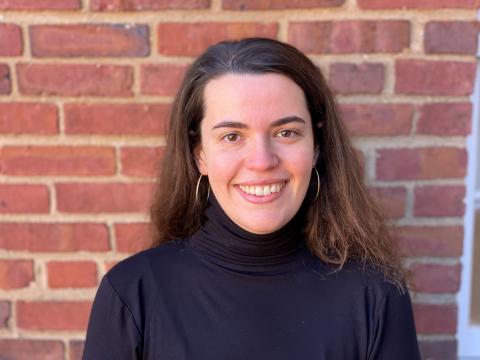
Nazli Azergun
MA Global Studies, University of California Santa Barbara 2019
BA Political Science and International Relations, Bogazici University 2016
Specialties
Anthropology of finance; sustainable finance and ESG investing; value; environment, extractivism, and just transition; corporations and corporate communication; anthropology of organizations
About me
I am a post-field PhD candidate in sociocultural anthropology track, expected to graduate Spring 2026.
I am broadly interested in the financial system and how it creates, ascribes, and destroys value(s), as well as the promises and tensions entailed by the relatively newer sustainable finance paradigm (also called ESG investing, as it accounts for Environmental, Social, and Governance factors in financial valuation). Within the span of two decades, the sustainable finance paradigm became incredibly popular as a powerful remedy to the dual challenge of our times, that is, protecting the environment and supporting our communities while also ensuring decent financial returns–only to be harshly battered by an anti-ESG backlash that started in the United States and spread to the rest of the world.
My dissertation research on the ESG investing movement is based on 24-month-long ethnographic fieldwork in Norway, where I divided my time between participant-observation at an asset manager (14 months) and conducting in-depth interviews with representatives of the financial sector and civil society (10 months). While my initial research question focused on how the culture-specific understandings of fiduciary duty enable or obstruct the development of a robust ESG investing scene, and aimed to present a comparative study of the United States and Norway, my time in the field showed me that, at least in Europe, fiduciary duty is not a make or break factor for ESG investing. Currently, I am focused on unraveling the internal tensions within financial institutions around the meaning of sustainability and transition, visions for achieving these goals as an investor, and different teams’, professionals’, and jurisdictions’ role in these processes.
I am also intrigued by ESG-focused financial professionals’ determination in juggling two opposed time frames of value creation in their practice: While the ESG professionals’ success is judged on a quarterly basis, as measured by the immediate monetary returns, they are also asked to attain sustainability goals and contribute to the creation of a more sustainable world, a task that has an incredibly long horizon. I hope to understand what exactly long-term means to ESG professionals as they keep losing sleep over quarterly profits.
Finally, I am interested in understanding and explaining certain sustainable finance practices, such as corporate engagement and impact reporting, which have hitherto mostly remained concealed to the outsiders of the financial industry. Most research on these matters focus on showing the effectiveness of investor strategies without going into what these strategies entail in the day-to-day lives of financial professionals. And through my work, I hope to contribute to the general population’s understanding of what ESG professionals do.
As part of this goal, I have authored a report investigating the ESG practices of a private development bank in my native Turkey. The report attempts to situate the Turkish ESG scene within the global sustainable finance community by extrapolating from the study of the bank’s ESG practices and organizational culture.
I also try to pursue this goal through my public-facing writing and teaching. During summer 2021, I taught a course on finance under UVA’s Launchpad program for undergraduate students. The course focused on understanding finance as a socially created institution with an immensely important impact for our communities, and involved students dissecting and proposing solutions to issues at the intersection of finance and our communities, such as regulatory capture, predatory lending, and racism and sexism in finance.
Prior to my time at UVA, I completed an MA degree in Global Studies on Fulbright funding. My MA thesis, based on short-term ethnographic research in an income-sharing community in rural Virginia, investigates how this community takes part in the market economy, despite claiming to carve out an anti-capitalist space, and allocates shared resources among community members. A peer-reviewed article based on my thesis, where I use Nobel laureate Elinor Ostrom's commons framework to explain the workings of this egalitarian community, was published in Economic Affairs.
Selected publications
Peer-reviewed articles
Reports
An Investigation into ESG Investing inTurkey:The Case Study of TSKB
Book reviews
Public-facing writing
Finance is Funds and Games Until It Stops (For Hedge Funds in New York) | The Geek Anthropologist